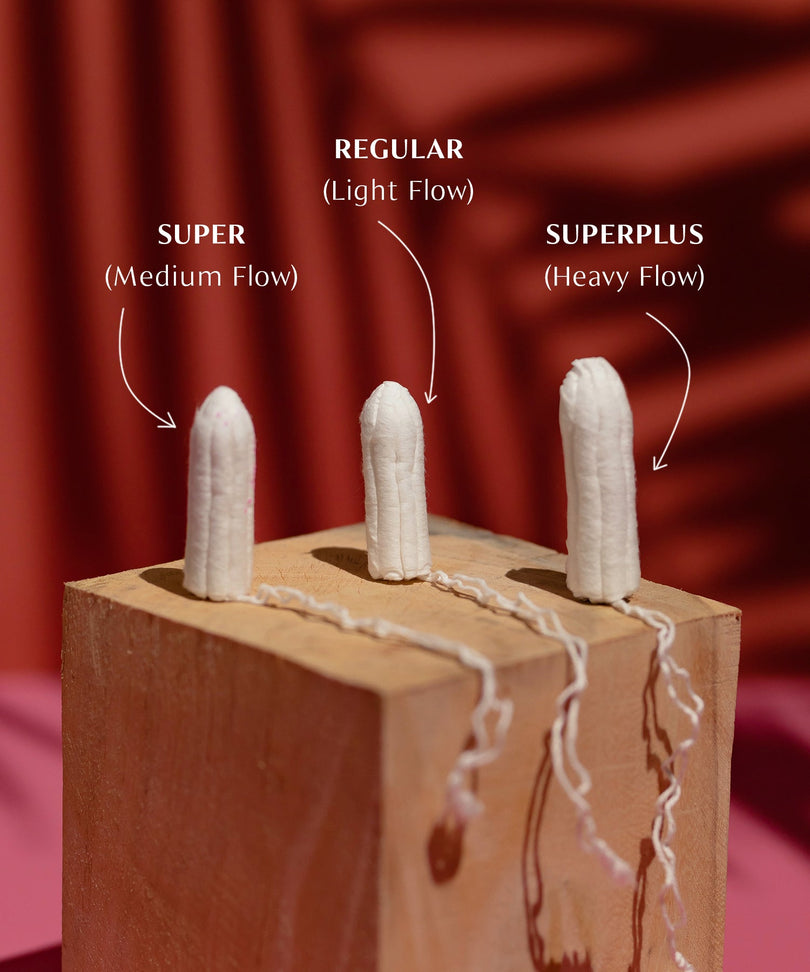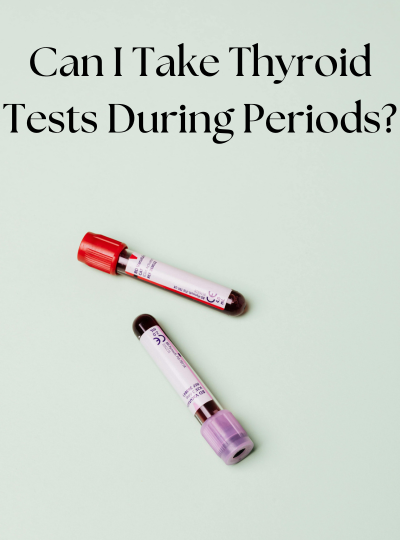How is thyroid function tested?
The three major indicators of thyroid function are thyroid-stimulating hormones (TSH) produced by the pituitary gland, and free triiodothyronine (T3) and thyroxine (T4) produced by the thyroid gland. TSH triggers the production of T3 and T4 hormones based on their levels in the bloodstream. The T3 and T4 hormones help to regulate the body’s energy use throughout bodily functions like heart function, brain development, metabolic functions, body temperature etc.
When testing your thyroid hormone levels, your T3 and T4 hormones along with your symptoms are key to determining whether you have hypothyroidism or hyperthyroidism. TSH testing can help doctors identify the cause of abnormal T3/T4 levels as the ratio of these three hormones is taken into account during the time of diagnosis
Also read - Can I get a pap smear on period?
When is the best time to test thyroid levels in the cycle?
According to Dr Fiona McCulloch, “If you are getting your TSH levels checked, it's best to do it at the beginning of your cycle when estrogen levels are low. But it's better to also test thyroid hormones fT3 and fT4 for a more accurate view of thyroid function.”
In case you get your thyroid hormone levels checked at any other time during your cycle, it’s important to look at the balance between your TSH levels and your free T3/T4 hormones and observe if your free T3/T4 hormones rise in correspondence with your TSH levels.
Does your period affect your TSH level?
Yes, your TSH levels can be affected differently depending on which part of your cycle you are on. This is usually an effect of fluctuations in estrogen levels. This occurs because the gland that produces TSH has estrogen receptors and produces more TSH when activated by higher amounts of estrogen in the body.
During ovulation, when your estrogen levels are the highest, TSH levels rise and can even rise beyond the reference range. TSH levels may be lower than usual during the follicular and luteal phases.During menstruation, TSH levels are at their lowest.
Also read - Can I eat papaya during periods?
Can thyroid be high during periods?
Yes, thyroid hormone levels can fluctuate during different parts the menstrual cycle, and this can affect thyroid function test results. Thyroid-stimulating hormone levels are often the lowest during menstruation due to the dip in estrongen. Persistent or significant abnormalities overtime may suggest a thyroid disorder. If you experience symptoms like fatigue, weight changes, or menstrual irregularities, see a healthcare professional for a proper evaluation.
Can hormone tests be done during periods?
Yes, Hormone tests can be done during periods, but the accuracy and timing depend on the specific hormones being tested and the purpose of the testing. Estrogen and progesterone levels naturally fluctuate during the menstrual cycle, so certain hormone tests may be more informative when performed at specific times. Changes in estrogen and progesterone are observed through multiple tests over the duration of the cycle to determine if there are any abnormalities.
Test results for fertility hormones like follicle-stimulating hormone (FSH) and lutenising hormone (LH) are most accurate during the start of your period. This is because these hormones highly fluctuate during the middle of the cycle. A reading of the hormones during the first 2-3 days of the cycle is a more accurate indication of one’s fertility, ovarian function, ability to produce follicles and quality of eggs.
However, thyroid function tests for free T3 and T4 hormones are generally not affected by the menstrual cycle and can be done at any time. Only TSH will be affected by the dip in estrogen during menstruation. Speak with your healthcare provider to determine the appropriate timing of hormone tests based on your individual health needs and the purpose of the testing.
Also read - Can I wash my hair during periods?
What shouldn’t you do before a thyroid test?
- Avoid Taking Thyroid Medication Before the Test: If you're on thyroid medication, it's generally recommended not to take it before the test, especially if you're having TSH levels checked. Taking medication before the test can skew the results and give an inaccurate picture of your thyroid function.
- Don't Consume Iodine-Rich Foods or Supplements: Iodine can influence thyroid function, so it's advisable to avoid consuming iodine-rich foods or supplements for at least a week before the test. These include seaweed, iodized salt, and certain multivitamins or supplements containing iodine.
- Limit Intense Exercise Before the Test: Intense physical activity can temporarily affect thyroid hormone levels in the body. To ensure accurate results, it's best to avoid vigorous exercise before the test. Opt for light to moderate activity instead.
- Avoid Fasting Before the Test: Fasting before a thyroid test may affect thyroid hormone levels, particularly TSH. It's generally recommended to have the test done in the morning after fasting overnight for optimal accuracy. However, if your healthcare provider has specific instructions regarding fasting, be sure to follow them.
- Minimize Stress and Anxiety: Stress and anxiety can also impact thyroid function and hormone levels. Try to minimize stress and anxiety before the test by practicing relaxation techniques such as deep breathing, meditation, or gentle yoga. This can help ensure more accurate test results.
What time of day is TSH highest?
TSH production follows a circadian rhythm of 24 hour cycles and is usually at its highest level between 2:00 AM to 4:00AM and drops to its lowest level between 4:00PM and 8:00PM.
Those suffering from hypothyroidism who get tested in the afternoon or the evening could receive normal reports, when their TSH levels were crucially higher just hours before testing.
This is why it is recommended to have your TSH levels checked first thing in the morning to get an accurate read.
Conclusion
Variations in thyroid levels are common and having TSH levels outside the recommended range is not always indicative of a disease. There are multiple factors that can affect TSH levels including your cycle which are not associated with thyroid problems.
Apart from relying on the numbers alone, your symptoms are another reliable marker by which your doctor can determine if you’re having thyroid issues. Your doctor should know about any weight fluctuations, fatigue, insomnia, muscle weakness, or joint pain to better understand if you have a thyroid disorder.
More to read
Can being sexually active make your period early?
Can I use metronidazole gel while on my period?
Why is my period blood watery?









